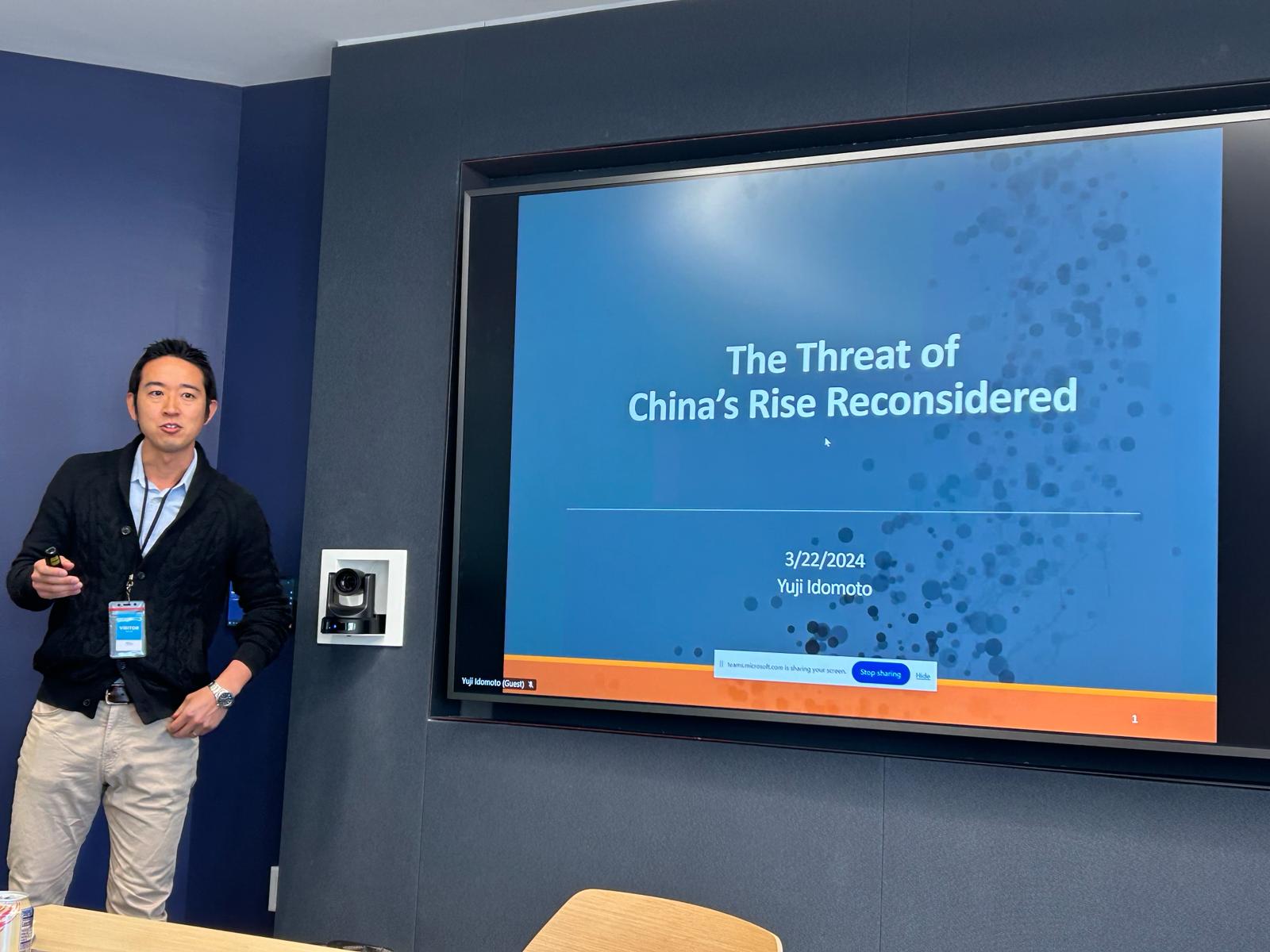News & Media
- Featured Story
- Archived Stories
- News Articles
- Videos
 We are excited to announce that JFIT has received a Japan Foundation grant in support of a new research and teaching initiative on “Japan and the Geopolitics of the Indo-Pacific”. The core component of this grant is to hire a post-doctoral scholar.
We are excited to announce that JFIT has received a Japan Foundation grant in support of a new research and teaching initiative on “Japan and the Geopolitics of the Indo-Pacific”. The core component of this grant is to hire a post-doctoral scholar.
In September 2024, Yuji Idomoto joined us for that position. Yuji is an expert in international relations, East Asian security and Japanese foreign policy. He is particularly interested in how and to what extent rising powers, such as China, may affect their neighbors’ military efforts. Prior to earning his Ph.D. from the University of Southern California, Yuji served for nine years in the Japanese government, namely in the Ministry of Defense and the National Security Secretariat.
He plans to spend his two years at GPS drafting a book manuscript on the security threat of rising powers, among others, and teaching a class on Japan and the Geopolitics of the Indo-Pacific, including Japan’s FOIP (Free and Open Indo-Pacific) initiative. He looks forward to interacting with faculty and students at UC San Diego and beyond, and is excited to become part of our rich academic community here at GPS.
He lives in La Jolla with his wife and daughter, enjoying beautiful beaches in his leisure time.
